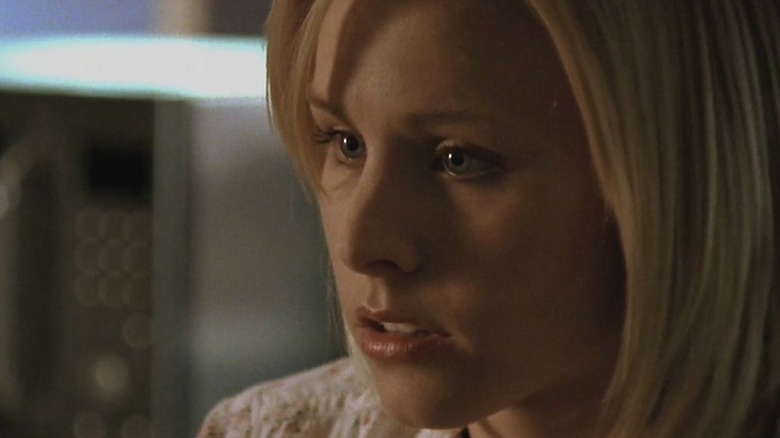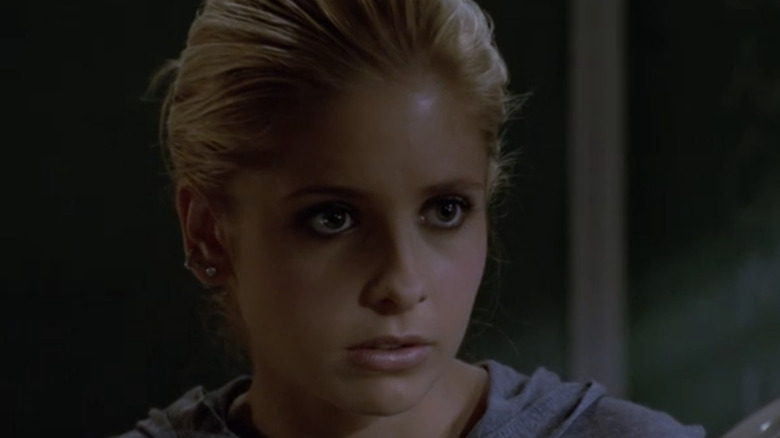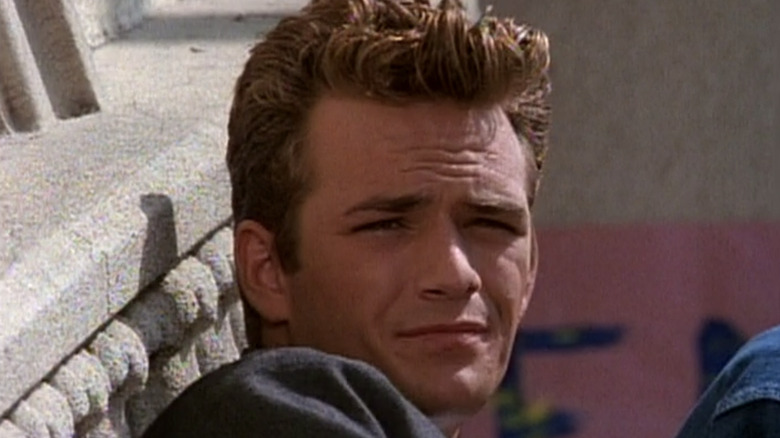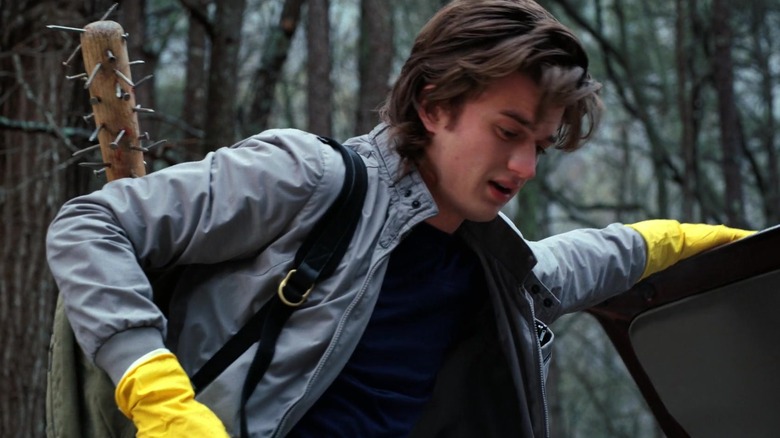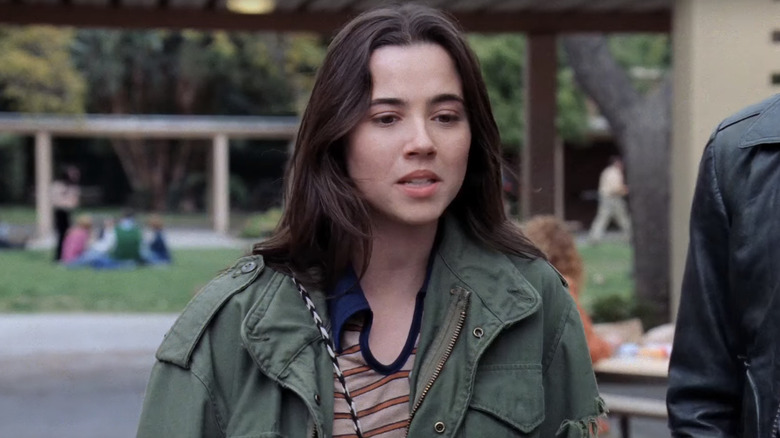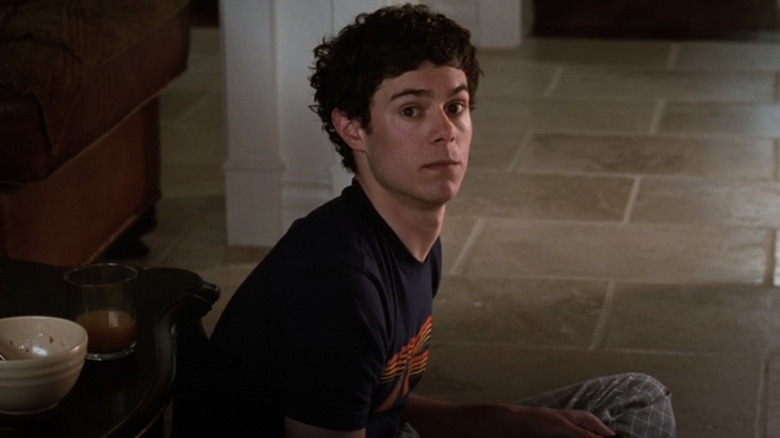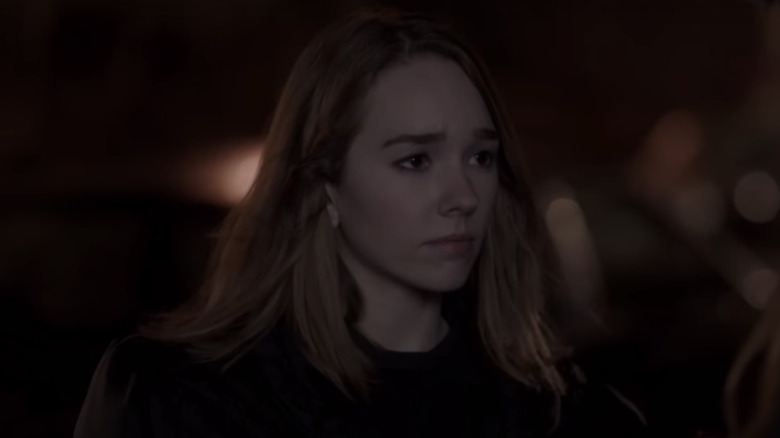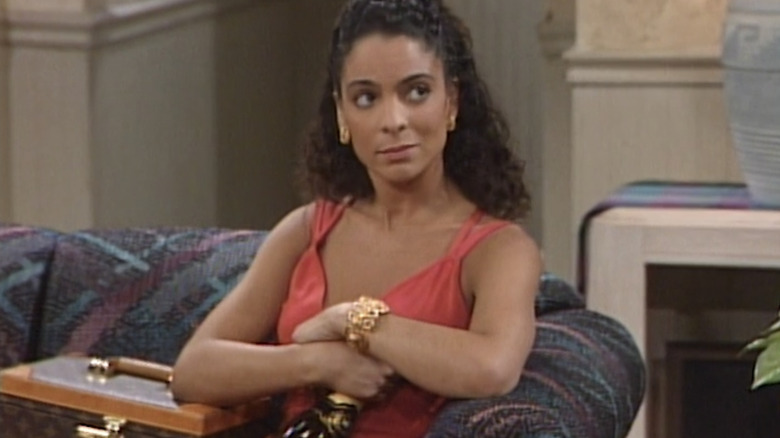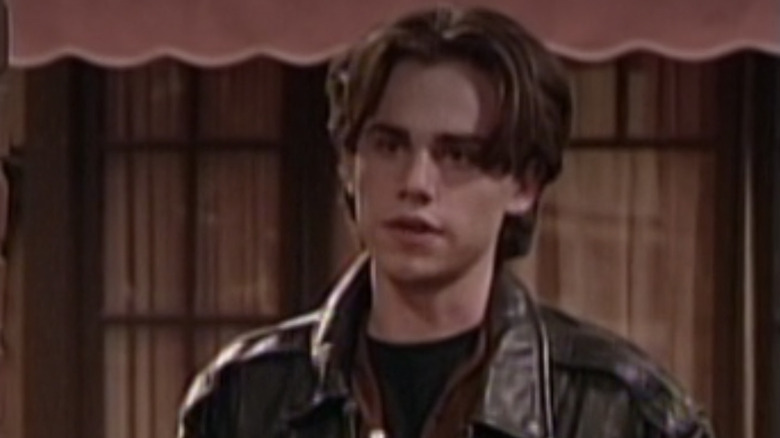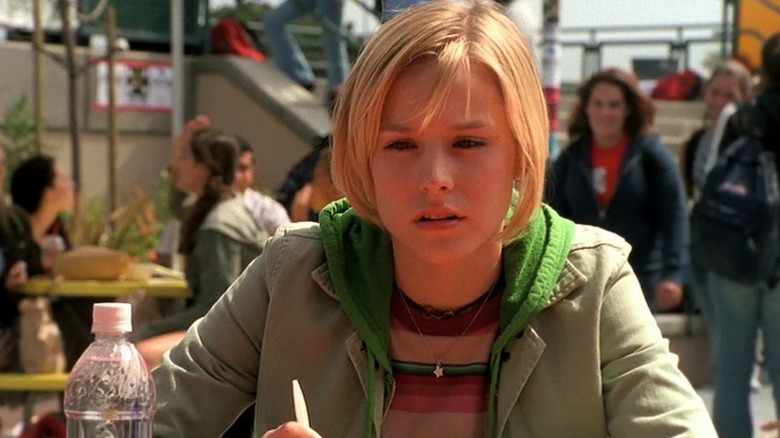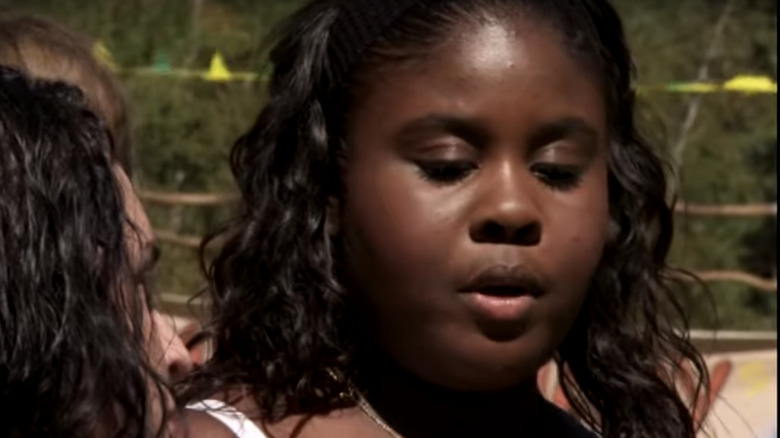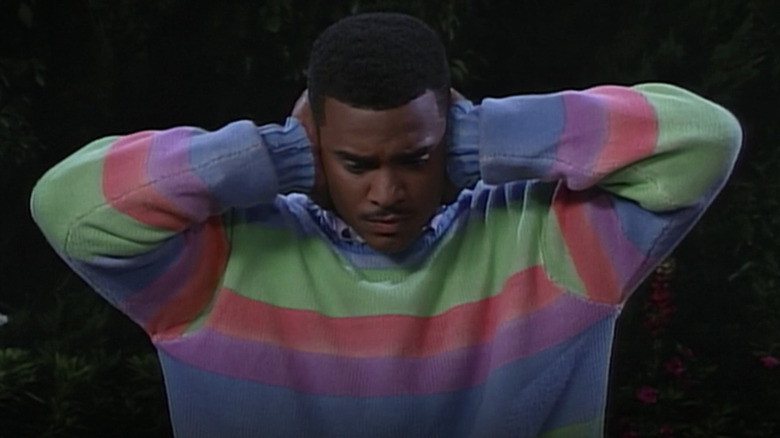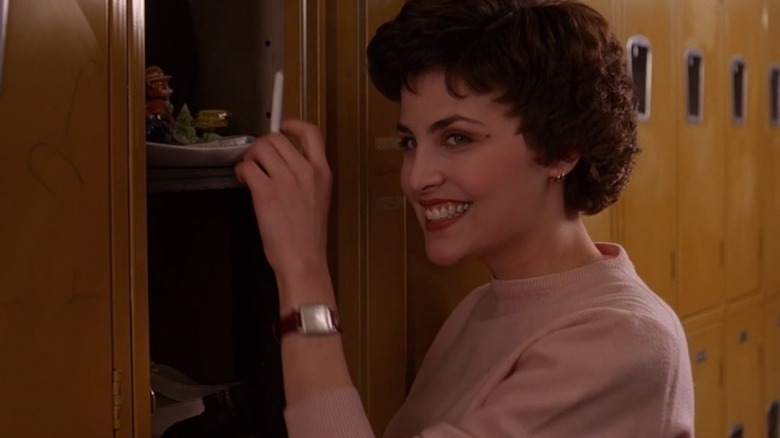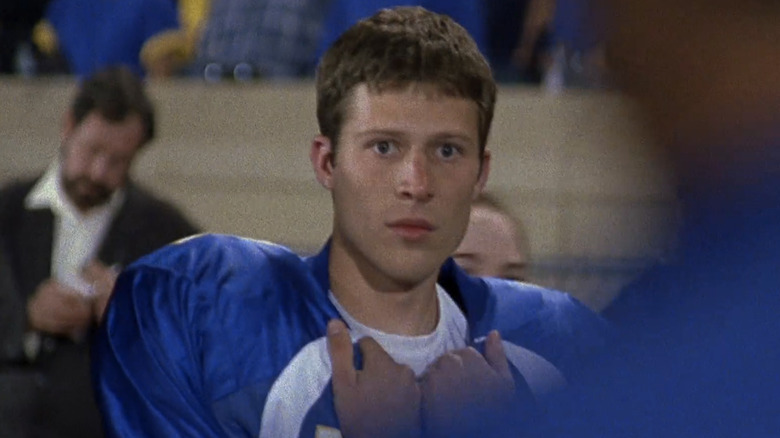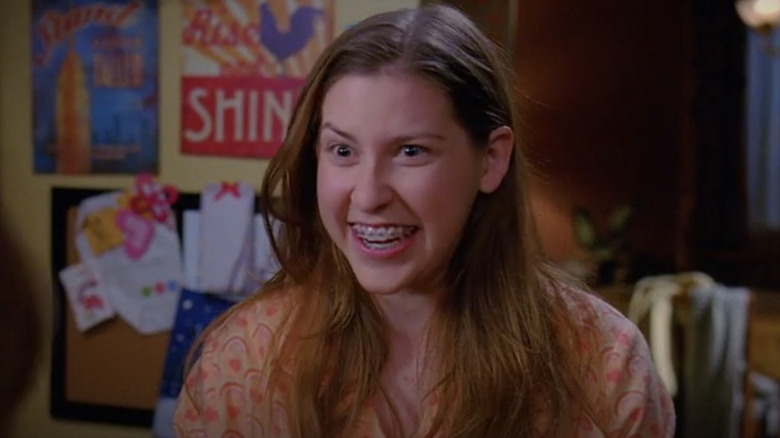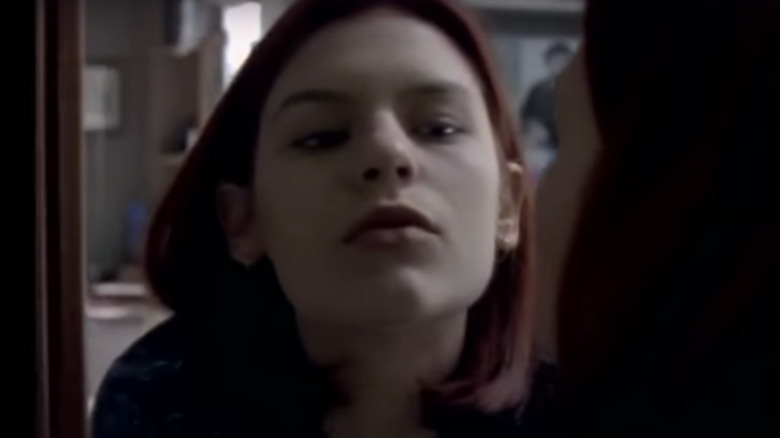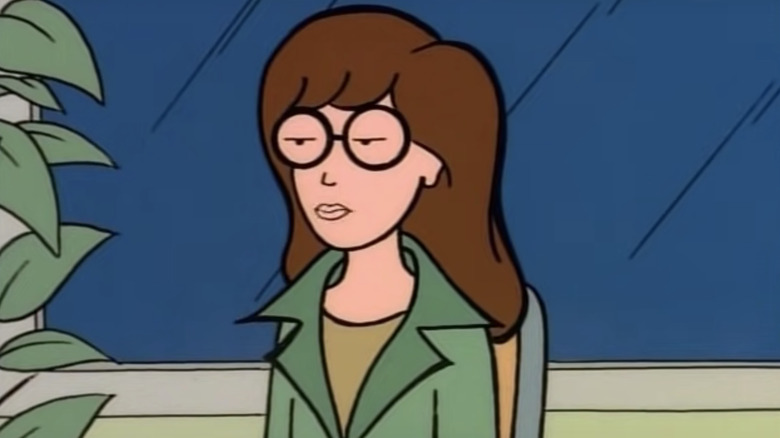The Best Teen Characters In The History Of TV
Ever since the concept of the "teenager" took hold in American life in the '50s, TV has given rise to a staggering number of classic teen characters. Each navigating the difficulties of their times, struggling to deal with disapproving parents, and conflicted by the way they have one foot in the childhood behind them and the other stepping into the adult world that awaits. From Dobie Gillis to Greg Brady, Doogie Howser to Kevin Arnold, Laurie Partridge to Blossom, in many ways these teenagers not only reflected the real-life teens who tuned in — they came to influence them.
When you think about it, the give-and-take makes sense.
Ages 13-19 are a period of life filled with upheaval, when every winking glance, flunked exam and biter break-up feel like they could be life-defining moments. That kind of conflict is a TV show's bread and butter.
High school is also about as close as all Americans have to a universal experience; no matter what job you will eventually get, no matter what your fate may be, there's a good chance you'll have to spend your teenage years memorizing a locker combo.
We may not understand each other, but we all know the landmarks of the teen years: Pimples. First dates. School stress. Passionate internal crises while listening to the same song on repeat. We all know this stuff, and we can't help being drawn to characters who either embody it or surpass it. Here are just a few all-time favorites.
Buffy Summers, Buffy the Vampire Slayer
Most of us probably didn't spend our high school years patrolling cemeteries, slaying vampires, and saving the world. But when you're a teenager, everything feels like a matter of life or death — and that helps make Buffy Summers one of the most relatable teen characters on TV, as well as one of the most vivid and unforgettable.
Buffy is the Chosen One, a super-strong young woman prophesied to stand up for humanity against vampires, demons, and other sources of darkness. She has a normal life outside of that — sort of. She hangs out with her friends — and they also help her sharpen stakes and fight evil. She experiences epic highs and lows with her first love — who is also a vampire with a soul.
Throughout it all, Sarah Michelle Gellar turned in a nuanced, vulnerable performance, showing Buffy as brave, funny, clever, and principled. The character started off as an ordinary girl, but her extraordinary circumstances helped forge her into a hero.
Dylan McKay, Beverly Hills, 90210
For viewers who grew up watching TV during the '90s, Luke Perry's Dylan McKay was a formative heartthrob — a guy who helped define what it was to be cool. He straddled the line between "dangerous" and "safe" in a perfect way for a teen soap: He was edgy enough to be enticing, but sweet and friendly enough to seem like someone you'd actually want to hang out with. The real world might be short on charming bad boys who are also empathetic and well-read, but as a fantasy, Dylan is completely convincing.
He had his own struggles — everything from alcoholism to "later-season wife killed by a hitman" — but they didn't make him unappealing. They just ratcheted up his personal angst in a way that fit perfectly with his broody TV idol image.
Sometimes the best icons are the idealized, archetypal ones. Dylan McKay might not have been a convincing teenager, but he was still the teenage dream.
Steve Harrington, Stranger Things
When "Stranger Things" first landed on Netflix, Joe Keery's Steve Harrington seemed like a difficult character to like. At first, he seemed like a standard-issue popular high school boy who could have stepped out of any '80s movie. But before the end of Season 1, Steve started to prove that — occasional jerk-like teenage behavior aside — he had a firm bedrock of decency.
His unexpected layers went even deeper in Season 2, surprising everyone by taking on the role of the world's best — and most badass — babysitter, working to protect the younger half of the show's cast from monsters and violent older brothers alike. By Season 3, all the trappings of high school popularity had washed away ... replaced by a sweet friendship with his ice cream store coworker, Robin, and efforts to infiltrate a secret Russian base dressed in a fake sailor outfit. You just can't beat that blend of humor, loyalty, and Farrah Fawcett hair spray tips.
Lindsay Weir, Freaks and Geeks
Cult classic show "Freaks and Geeks" is, in retrospect, an almost uncanny gathering of some of the best up-and-coming comedic stars of their generation, but the most indispensable element is definitely Linda Cardellini's Lindsay Weir. She's the quiet, empathetic center of the show.
Lindsay used to be a straight-arrow good girl — an A student and mathlete — but as the show begins, she's drawn to the "freaks" crowd: the rebels, pot-smokers, slackers, and rock music fans. Her rebellion leads to some fascinating character development as the show goes on, and her arc of basically dropping off the pre-approved, straight-and-narrow path — by the end, she's skipping out on a prospective college event to follow the Grateful Dead — is still pretty unconventional.
The show lets her make her own choices, and as a result, she feels like a really naturalistic, lived-in character. In the process, over the course of only 18 episodes, Cardellini's portrayal became an icon for kids who wondered if the life course they were on was really the one they wanted.
Seth Cohen, The OC
The boy who inspired the word "adorkable," Adam Brody's Seth Cohen on "The OC" made a huge impact when the show first aired. Fans fell hard for good-hearted Seth, a sarcastic tour guide to the wealthy and privileged world of Orange County. He was born into that world, but his neurotic sensibilities — and high school loser geekiness — put him just a little bit outside it, and that made him the perfect adoptive brother for Ryan Atwood, the show's main character from the wrong side of the tracks.
Seth also leads to one of the all-time favorite teen TV romances when he gets with longtime crush Summer, a popular girl who can match him snarky comment for snarky comment and who turns out to be his perfect match.
Basically, Seth is one of TV's signature charming geeks: Instantly likable and a great hook into the primetime soap drama of "The OC." Plus, he invented Chrismukkah!
Paige Jennings, The Americans
It's the '80s, and Paige Jennings is smart enough to know that there's something a little weird about the hours her travel agent parents keep and the way they're always ducking down to the laundry room. But all the suspicions in the world can't stop her life from shattering when she finds out that her parents are Soviet spies ... and their handlers want Paige to become one as well.
Holly Taylor's sensitive, raw performance on "The Americans" gave viewers empathy for her agonizing dilemma. Her sincerity in her own convictions made it hard for her to compromise them for her family's sake. She wanted to be a good daughter, but at what cost?
The huge, serious issues Paige was asked to shoulder emphasized how young she was and how overwhelming life had become, making her strength more apparent. Watching her slowly become both a main character on "The Americans" and the show's beating heart — the embodiment of its stakes — was incredibly compelling.
Whitley Gilbert-Wayne, A Different World
Originally a "Cosby Show" spinoff, "A Different World" quickly established its own identity. One of the best examples of that is Jasmine Guy's Whitley Gilbert, who leapt into new prominence in Season 2.
Whitley began the series as a spoiled semi-antagonist, but the series started developing her in ways that really let her shine. They had a lot to work with — you don't see many Black Southern belles with Whitley's style, poise, and confidence on TV today, let alone in the late '80s and early '90s. Although most classic teen TV characters are depicted as being in high school, the early college years can be just as ripe for storytelling, as they were for Whitley.
In the years since, the character has had a profound cultural impact. According to Danielle Cadet at The Undefeated, Whitley was a major influence on subsequent Black female TV characters, especially in terms of her carefully cultivated "bad and boujee" style. When "A Different World" became its own show, it stepped into bold new territory — and nobody defined that better than Whitley, a trailblazer for everybody who would come after her.
Shawn Hunter, Boy Meets World
Adorable, loyal, and just a little rough around the edges, Shawn Hunter was probably the best and most complexly-developed character on the quintessential coming-of-age show "Boy Meets World."
There's almost a meta aspect to his character. Shawn is all too aware that he's defined as "the bad boy," the counterpart to the upstanding, mostly-rule-abiding, suburban Cory. While sometimes he likes that role — hey, it makes him cool, and it certainly gets him dates — he also sometimes chafes at its boundaries. He has trouble believing that someone like him could ever go to college, so for a long time, he doesn't even try. He runs into girls who immediately write him off as a long-term boyfriend because of his "reputation." You could say that his journey over the course of the show is discovering how to combine his image with both his values and his messier emotions in order to become the person he really wants to be.
Shawn straddles the line between idealized and relatable, and Rider Strong knew how to be playful with the comedic bits and sensitive and openly expressive with the dramatic ones. It all made for a well-rounded performance, one of the big reasons "Boy Meets World" still holds up.
Veronica Mars, Veronica Mars
Veronica Mars has the soul — and sharp mind, doggedness, and past sorrows — of an old-school hard-boiled private eye. Sure, she's still in high school, but she helps out her dad at Mars Investigations, she takes on cases for her classmates, and — for the whole of the first season — she's devoted to unraveling the truth behind her best friend's murder. Veronica became a classic character in all her smart, sarcastic glory, and Kristen Bell completely convincingly portrayed a girl as a skilled detective who could have stepped straight out of a noir movie.
Episode after episode, viewers were drawn into her quest to find justice for her friend (and herself). She even got one of TV's most passionate, on-again-off-again romances, and her close relationship with her dad, Enrico Colantoni's Keith Mars, was especially sweet and grounded her in the real world. Watching Veronica became Veronica, fans never wanted to look away.
Becca, Huge
Set at a teen weight-loss camp, ABC Family's "Huge" was an underrated, underseen one-season wonder. It boasted a cast full of standouts — but the most impressive may have been Raven Goodwin's Becca.
Shy and nerdy, Becca develops an unexpected close friendship with angry, outspoken Willamena (Nikki Blonsky), but over the course of the show, she has to learn how to not just follow along in Will's wake and let her make all the decisions. One of her best moments comes when she not only takes back control of her LARPing group — which Will has "improved" beyond all recognition — but also uses her role-playing to channel the additional strength and confidence she needs to firmly order some trespassing bullies off camp property.
When girl geeks turn up on TV, they often fall into a narrow range: cheerful, quirky love interests or off-putting outcasts. Becca breaks the mold by having genuine faults that cause her real problems, by having a real sense of inner self, and by still being likable and fascinating.
Carlton Banks, The Fresh Prince of Bel-Air
Sure, Will Smith was the star, but he didn't invent the Carlton Dance.
Hopelessly square, preppy Carlton Banks — wealthy cousin to the hip "Fresh Prince of Bel-Air" — Carlton didn't have a fraction of Smith's effortless cool. It didn't matter. That endearing goofiness made him a breakout character in memorable scenes that had him heartbroken for the Trix rabbit ("How come they couldn't just give him some cereal?") or dancing his heart out to "It's Not Unusual."
"Fresh Prince" knew it had a goldmine in Carlton's dorkiness, though he did still get his fair share of serious moments. He may have started out smug and snobbish, but his defining traits quickly became even funnier and a lot more likable, and that's the version of Carlton permanently engraved in the memories of viewers.
Audrey Horne, Twin Peaks
"Twin Peaks" took traditional soap opera elements and injected them with avant-garde filmmaking and the amplified emotion of the teenage years — all the while acknowledging what it was doing ("Invitation to Love," anyone?).
One of the most memorable examples of that aesthetic was Sherilyn Fenn's iconic Audrey Horne. At first, she came across as a typical bad girl: a sultry, flirtatious troublemaker interested in older men and only looking out for herself. But Audrey was much more than her devil-may-care surface and saddle shoes would suggest. That early confidence was mostly bravado, bad behavior to get the attention of her wealthy, dark-intentioned father. It was her (thankfully, one-sided) crush on Agent Cooper that revealed her to be sincere, touchingly deep and reminiscent of the same spirit that Veronica Mars would bring to her adventures more than a decade later. Honestly, is it that much of a leap to imagine Veronica going undercover at One Eyed Jack's?
That hardened outer shell, mixed with inner vulnerability, made Audrey endlessly compelling — and all the more heartbreaking when "Twin Peaks" fans caught up with Audrey 25 years later to find she did not in fact receive a happy ending, but was instead trapped in some sort of twisting, existential limbo-like living hell that only David Lynch could conceive.
Matt Saracen, Friday Night Lights
In the pilot episode of "Friday Night Lights," the star quarterback of the Dillon Panthers sustains a spinal cord injury, and nervous sophomore Matt Saracen (Zach Gilford) has to take charge of a team where he never even expected to be noticed. Gulp.
While Matt gains more confidence over time, he remains a humble, sweet, and self-effacing. He's also completely devoted to the people he loves, something viewers see right from the start with how he takes care of his grandmother. Coach Taylor may not be happy about anyone going out with his daughter, but honestly, Matt Saracen is who you want your daughter dating.
Matt's best episode may be Season 4, Episode 5, "The Son," where he has to deal with the death of a father he hardly even know, one who used his war service as a way to walk out on his family. Because viewers know Matt as a generally quiet kid who shoulders everything put on him, his breakdown stands out as one of the show's most memorable scenes.
Sue Heck, The Middle
Sue Heck is, above all else, unique. Want proof? Just look at her clothes: so kooky and colorful that you wonder how the wardrobe department even discovered them. She's optimistic to a fault, determined to soldier on cheerfully through a world that often seems intent on ignoring her.
Sue goes through plenty of humiliation and setbacks. There's a reason that when her dad is honored for his long years of service at the quarry, she gives him advice that clearly comes from long, weary experience: "Sometimes you think you won, and then at the last minute, you didn't. Wait for them to call your name. Twice."
But throughout it all, she keeps fighting and keeps believing in herself. Her sunniness may occasionally cloud up a little, but it never goes away. And her tenacity, intelligence, sweetness, and outgoing spirit ultimately win her a lot of victories — and even a happy ending. Her brother Axl grudgingly but admiringly dubbed her a "dork optimist," and that quality deserves a place in TV history.
Angela Chase, My So-Called Life
Now that Angela Chase (Claire Danes) is a high school sophomore, she wants to reboot herself — to try out a new life and discover who she really is. Should she stay with the old, familiar crowd she had before, the ones with the good grades and more conventional ideals? Or should she hang out with the ones who push the envelope and bend the rules? She's asking the same questions many folks ask in high school (or even later): "Who am I, and what do I want?"
Angela's meandering journey of self-discovery remains a cult classic and a gem of '90s television. Unlike a lot of teen-focused TV of that era, the conflicts and issues she faced — which included everything from drugs to homophobia to guns in school — weren't safely confined to their own individual episodes. Everything spilled over and influenced everything else, giving "My So-Called Life" a realistic texture that made Angela's growth as believable as it is compelling.
Daria Morgendorffer, Daria
Daria the character first debuted on "Beavis and Butt-Head," but her world-weary personality and dry, sardonic sense of humor embodied Gen X sensibilities too well for her to stay on someone else's show. She needed her own series. As a deeply unimpressed semi-outsider, she's a counterbalance to all of TV's popular kids, and a representative of anyone who has ever rolled their eyes at a pep rally.
With all that in mind, one of the best things about Daria is she still got to grow up a little over the course of the series, ultimately accepting that she's not really that far above it all. She and her sister, Quinn — who started off as a standard-issue shallow, popular mean girl type — even inch towards a better relationship.
But don't worry: Daria never softens too much for you to recognize her. She remains one of the standard-bearers for witty cynicism and deadpan mockery.
